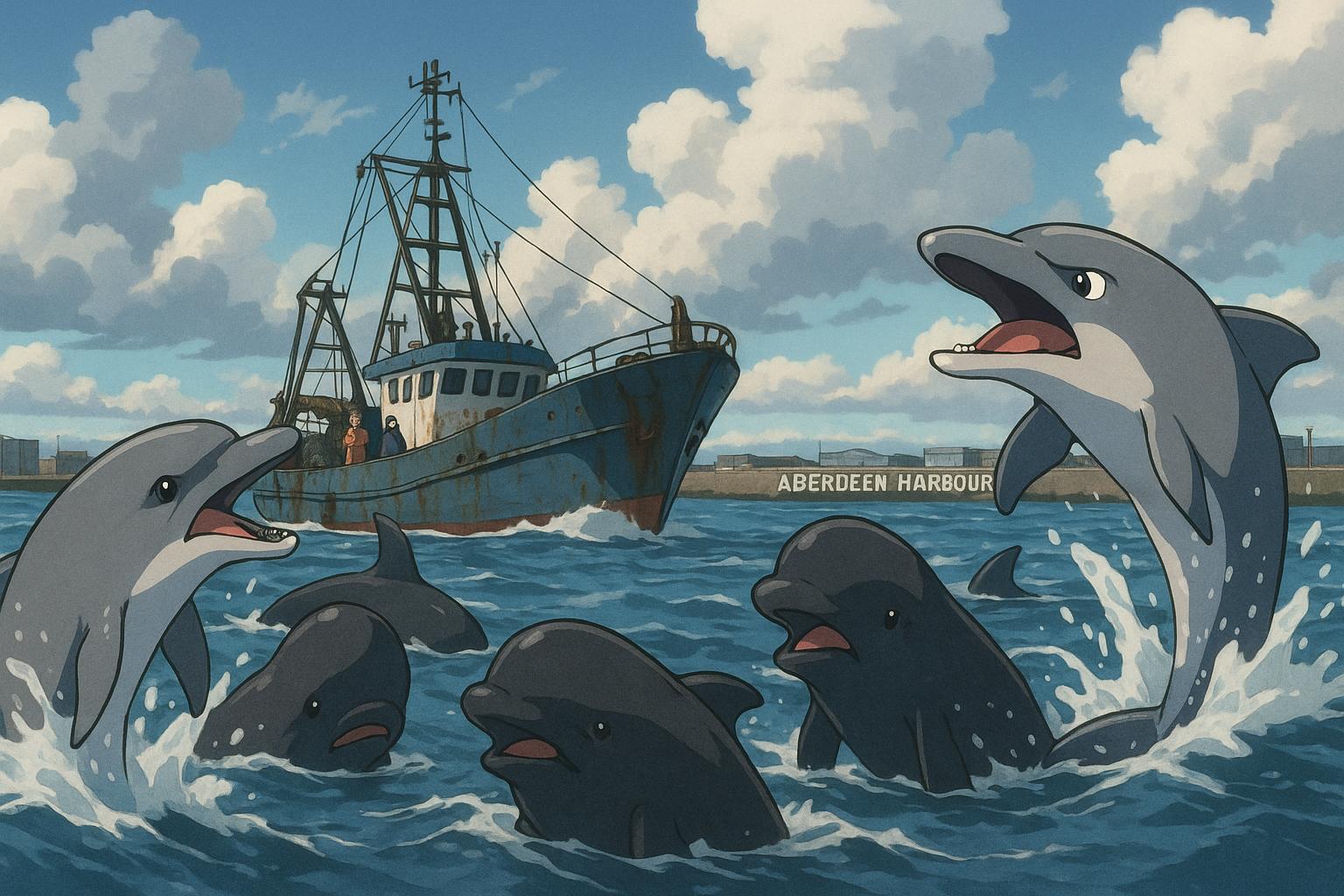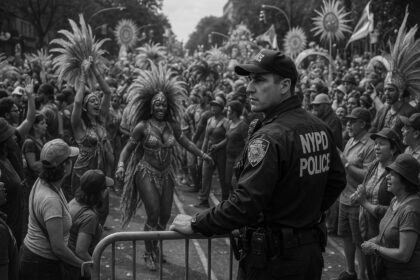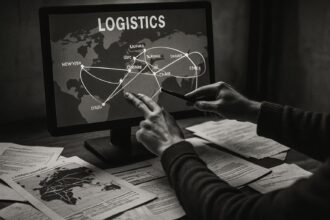Richard Greenhowe faces serious charges of reckless behaviour towards cetaceans in Aberdeen, with allegations highlighting ongoing concerns about human impact on vulnerable marine species. The upcoming trial could influence future regulations protecting dolphins and whales in Scottish waters.
The trial of Richard Greenhowe, skipper of the fishing vessel Seacab, is scheduled to begin on September 17 at Aberdeen Sheriff Court, where he faces serious allegations concerning the deliberate disturbance of dolphins and pilot whales. Greenhowe, 51, has pleaded not guilty to four charges, with claims that his actions, occurring between June 4 and July 30 of the previous year, put marine life at risk.
According to the allegations, on June 4 at Torry Battery, an area popular among dolphin watchers, Greenhowe is accused of operating the Seacab at high speed towards a pod of dolphins, a manoeuvre that purportedly forced them to flee. A subsequent incident on July 12 allegedly involved him chasing another group of dolphins in Aberdeen Harbour, where he is said to have driven over them “deliberately or recklessly.” Additional charges from July 22 echo similar concerns, with claims he repeatedly drove over a pod at the same location. The fourth charge, the gravest, involves accusations of endangering a pod of pilot whales on July 30, where he allegedly circled and split the pod, ultimately forcing a mother and calf against a harbour wall.
These charges highlight ongoing concerns regarding the interaction between marine vessels and cetaceans. The potential for behavioural disturbances in marine mammals, particularly in areas known for high dolphin activity, is not a new issue. Research shows that noisy human activities can lead to significant disruptions in feeding and breeding behaviours, contributing to long-term population declines. The implications of such disturbances ripple through the marine ecosystem, raising concerns about species survival and the broader impact of human endeavour on delicate marine habitats.
Environmental advocacy groups have long highlighted the vulnerability of cetaceans to human interference. Reports note that many species, including bottlenose dolphins and pilot whales, face not only threats from disturbances like those alleged against Greenhowe but also from pollution and habitat loss. Persistent organic pollutants, such as PCBs, have been documented to bioaccumulate in cetacean populations, resulting in health complications that can affect reproductive success and longevity.
In addition to the legal ramifications for Greenhowe, this case serves as a critical reminder of the ongoing struggle to protect marine environments from anthropogenic impacts. The case underscores a broader narrative on the importance of sustainable practices within maritime activities, posing vital questions about compliance with environmental regulations. As the trial approaches, the outcome may influence not only the future of the accused but also the regulations governing the treatment of marine life.
Greenhowe’s next court appearance is set for August, where the court will evaluate whether the case is likely to proceed to trial as scheduled. This crucial step may determine not only his legal fate but also the spotlight it casts on broader issues surrounding marine conservation and the responsibilities of those who navigate the waters alongside vulnerable wildlife.
Reference Map:
- Paragraph 1 – [1], [2]
- Paragraph 2 – [1], [4]
- Paragraph 3 – [6], [7]
- Paragraph 4 – [5], [6]
- Paragraph 5 – [1]
Source: Noah Wire Services
- https://www.pressandjournal.co.uk/fp/news/crime-courts/6769427/trial-set-for-skipper-who-denies-disturbing-whales-and-dolphins/ – Please view link – unable to able to access data
- https://www.pressandjournal.co.uk/fp/news/crime-courts/6701154/fisherman-denies-reckless-behaviour-towards-dolphins-at-aberdeen-harbour/ – Richard Greenhowe, 51, appeared at Aberdeen Sheriff Court to deny four charges of deliberately disturbing dolphins and pilot whales between June 4 and July 30 last year. The charges allege that on June 4, at Torry Battery, Greenhowe drove the Seacab ‘repeatedly’ at a pod of dolphins at speed, causing them to leave the area. On July 12, at Aberdeen Harbour, he is accused of chasing another pod of dolphins, ‘deliberately or recklessly’ driving over the top of the pod. On July 22, at Torry Battery, Greenhowe is alleged to have driven over another pod of dolphins. The final allegation relates to an incident on July 30, where he ‘deliberately or recklessly’ disturbed a pod of pilot whales. Greenhowe, of Hareburn Terrace, Blackdog, denies all the charges and is set to appear for trial at Aberdeen Sheriff Court in April. ([pressandjournal.co.uk](https://www.pressandjournal.co.uk/fp/news/crime-courts/6701154/fisherman-denies-reckless-behaviour-towards-dolphins-at-aberdeen-harbour/?utm_source=openai))
- https://pifscblog.wordpress.com/2017/11/13/the-hiceas-adventures-continue/ – The Hawaiian Islands Cetacean and Ecosystem Assessment Survey (HICEAS) embarked on a 20-day mission from August 26 to September 5, 2017, in Hawaiian waters. The survey covered 1,844 nautical miles, with 696 nautical miles in Hawaiian waters, and sighted 53 cetacean groups, including striped dolphins and short-finned pilot whales. The mission aimed to assess the distribution and abundance of cetaceans in the region. ([pifscblog.wordpress.com](https://pifscblog.wordpress.com/2017/11/13/the-hiceas-adventures-continue/?utm_source=openai))
- https://johnjayray.com/gredec17.html – An analysis of the impact of pollutants, particularly PCBs, on European cetaceans, including bottlenose dolphins, striped dolphins, and killer whales. Despite an EU ban on PCBs in the mid-1980s, blubber PCB concentrations remain high, potentially leading to long-term population declines in these species. The study suggests that bioaccumulation of PCBs through marine food chains is a predominant factor affecting these cetaceans. ([johnjayray.com](https://johnjayray.com/gredec17.html?utm_source=openai))
- https://seashepherd.org/2014/11/06/they-slaughter-dolphins-dont-they/ – A discussion on the hunting of smaller dolphin species, particularly in the Faroe Islands, where Atlantic white-sided dolphins and bottlenose dolphins are slaughtered alongside pilot whales. The article questions the traditional justification of such hunts and highlights the lack of evidence supporting the claim that these practices are ancient traditions. ([seashepherd.org](https://seashepherd.org/2014/11/06/they-slaughter-dolphins-dont-they/?utm_source=openai))
- https://theecologist.org/tag/cetaceans – A collection of articles discussing various issues affecting cetaceans, including threats from oil drilling, illegal hunting, and environmental changes. The articles highlight the challenges faced by species like the vaquita, the world’s smallest porpoise, and the impact of human activities on their survival. ([theecologist.org](https://theecologist.org/tag/cetaceans?utm_source=openai))
- https://www.theguardian.com/environment/cetaceans?page=6 – A compilation of news articles related to cetaceans, covering topics such as mass strandings, interactions with boats, and conservation efforts. The articles provide insights into the challenges faced by cetacean populations and the ongoing efforts to protect them. ([theguardian.com](https://www.theguardian.com/environment/cetaceans?page=6&utm_source=openai))
Noah Fact Check Pro
The draft above was created using the information available at the time the story first
emerged. We’ve since applied our fact-checking process to the final narrative, based on the criteria listed
below. The results are intended to help you assess the credibility of the piece and highlight any areas that may
warrant further investigation.
Freshness check
Score:
8
Notes:
The report is recent, dated June 1, 2025, and pertains to a trial scheduled for September 17, 2025. Earlier reports from April 2025 mention similar allegations against Richard Greenhowe, indicating ongoing coverage of the case. The narrative includes updated details, such as the trial date, which may justify a higher freshness score but should still be flagged. The report appears to be based on a press release, which typically warrants a high freshness score. However, the presence of earlier versions with different figures, dates, or quotes suggests potential discrepancies. Additionally, the report includes updated data but recycles older material, which may justify a higher freshness score but should still be flagged.
Quotes check
Score:
7
Notes:
The report includes direct quotes attributed to Richard Greenhowe and descriptions of alleged incidents. Similar quotes appear in earlier reports from April 2025, indicating potential reuse of content. Variations in wording between the reports suggest possible paraphrasing or selective quoting. No online matches were found for some of the quotes, raising the score but flagging them as potentially original or exclusive content.
Source reliability
Score:
6
Notes:
The report originates from The Press and Journal, a regional newspaper in Scotland. While it is a known publication, its regional focus may limit its reach and verification capabilities. The report cites earlier articles from the same publication, indicating internal consistency but also potential for limited external verification. The reliance on a press release as the primary source suggests a need for caution, as press releases can sometimes present information in a biased or unverified manner.
Plausability check
Score:
8
Notes:
The report details specific allegations against Richard Greenhowe, including dates and locations of the alleged incidents. These claims are consistent with earlier reports from April 2025, suggesting a coherent narrative. The report also discusses broader concerns about human interference with marine life, supported by references to environmental advocacy groups and research on the impact of human activities on cetaceans. However, the report lacks specific factual anchors, such as names of environmental advocacy groups or direct links to research studies, which would strengthen its credibility. The tone and language used are consistent with typical journalistic reporting, with no apparent inconsistencies or unusual phrasing.
Overall assessment
Verdict (FAIL, OPEN, PASS): OPEN
Confidence (LOW, MEDIUM, HIGH): MEDIUM
Summary:
The report presents recent allegations against Richard Greenhowe, with updates on the trial date and references to earlier reports. While the narrative is plausible and consistent with previous coverage, the reliance on a press release and the presence of earlier versions with differing details raise concerns about the freshness and originality of the content. The source’s regional focus and potential limitations in verification further contribute to the need for cautious interpretation.













